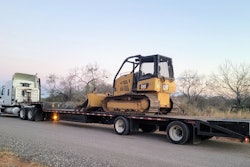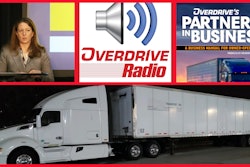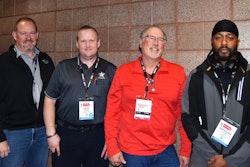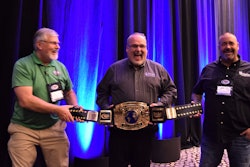A poll question accompanied Overdrive's recent video explainer of some of the intricacies of just how operators can use "personal conveyance" for purely personal uses of the truck and trailer. The question explored recent high-profile calls for a time and/or distance limit in official guidance or regulation for PC, an off-duty status in a logbook and a special mode in an electronic logging device that allows off-duty movement of the truck.
Thanks to all of you who weighed in with the poll. Turns out my hunches about where Overdrive's owner-operator audience might come down on the question of whether such a time/distance limit was appropriate were more or less confirmed. Most readers favored status-quo treatment in terms of guidance around PC use, where carriers have discretion to develop internal policies that limit time and distance for employed or contracted operators. Generally, however, the principal limiting factor in guidance is whether the use of the vehicle is in fact personal in nature.
For independents, that determination is in their control, as it should be, noted independent owner-operator Ernie Cox, commenting on Overdrive's Facebook page: "If I say it’s personal, end of story,."

Yet abuse of the off-duty driving status, enforcement representatives contend, is not hard to find.
In its bid to influence the Federal Motor Carrier Safety Administration toward agreement with the contention that a time/distance limit is needed, the Commercial Vehicle Safety Alliance began tracking officer-deemed-inappropriate uses of PC with a special coding for so-called false log violations that were a result of faulty PC use. As previously reported, officers noted more than 3,000 such violations since June of 2021 alone.
Some in Overdrive's audience agreed that distance/time limitations might yield some clarity in the enforcement of the rule. That's what CVSA has sought in its petitioning of FMCSA to impose such a limit, already a reality in Canada.
Todd Huss, commenting at Overdrive's Facebook page, illustrated variability in interpretation of what's appropriate: "Hardest thing about PC is every company, law enforcement officer, or agency looks at it differently."
Bob Hudon got more practical in his illustration of the enforcement variability dynamics, urging drivers be very careful about how they use off-duty driving enabled by personal conveyance. He said some states -- Connecticut specifically -- seem to think "you cannot drive any commercial vehicle if you have driven 11 hours" in a given day, period. "DOT loves nailing drivers [embarking from] route 95 in Milford, Connecticut. Drivers drop trailers at the Pilot and drive on route 1 to go eat or shopping or even go to the shores. They love stopping bobtails."
[Related: What works in the logbook or ELD as 'personal conveyance'?]
"PC should have a distance/time limit," concluded Mike Fauci in comments under the Overdrive poll, pointing to an example shared by another commenter that misinterpreted what's allowable as personal conveyance. Business uses of the truck, whether loaded or not, are on-duty driving, broadly, he noted, citing what he saw as appropriate PC use: "PC is supposed to allow a driver that brings his/her truck home to travel from the unloading point to their house to spend time off-duty or from home after being off-duty to their loading location. Or from the truck stop to a restaurant to eat and back to the truck stop."
In advance of the electronic logging device mandate coming into play, FMCSA clarified some other particular uses of PC, too, that responded to frequent complaints about law enforcement interruption of drivers' off-duty periods and the bedrock reality of parking shortages all around the nation.
One commenter under the poll made reference to the latter, also invoking two more national issues of importance: well-known congestion in metro areas and the nation's container port facilities. Loaded in the afternoon at Port of Long Beach, the commenter said, and delayed such that you run out of hours during a peak congestion period, personal conveyance time/distance limits might well be insufficient to get the rig to the safest parking space, now allowable under federal guidance. In and around Los Angeles it might "take you 2 to 3 hours before you can get out of traffic and maybe find a parking spot," the commenter said.
You might think of it as the old one size does not fit all argument in favor of variability, flexibility when it relates to so much of the hours of service regulations. Indeed, that same commenter offered a variation on that theme, of a fashion: "Trucking is not a 9 to 5 job, and whoever thinks it is has never done any real trucking."
[Related: ELDs: What can you do about your 'jacked-up log' when you forget to go PC?]











